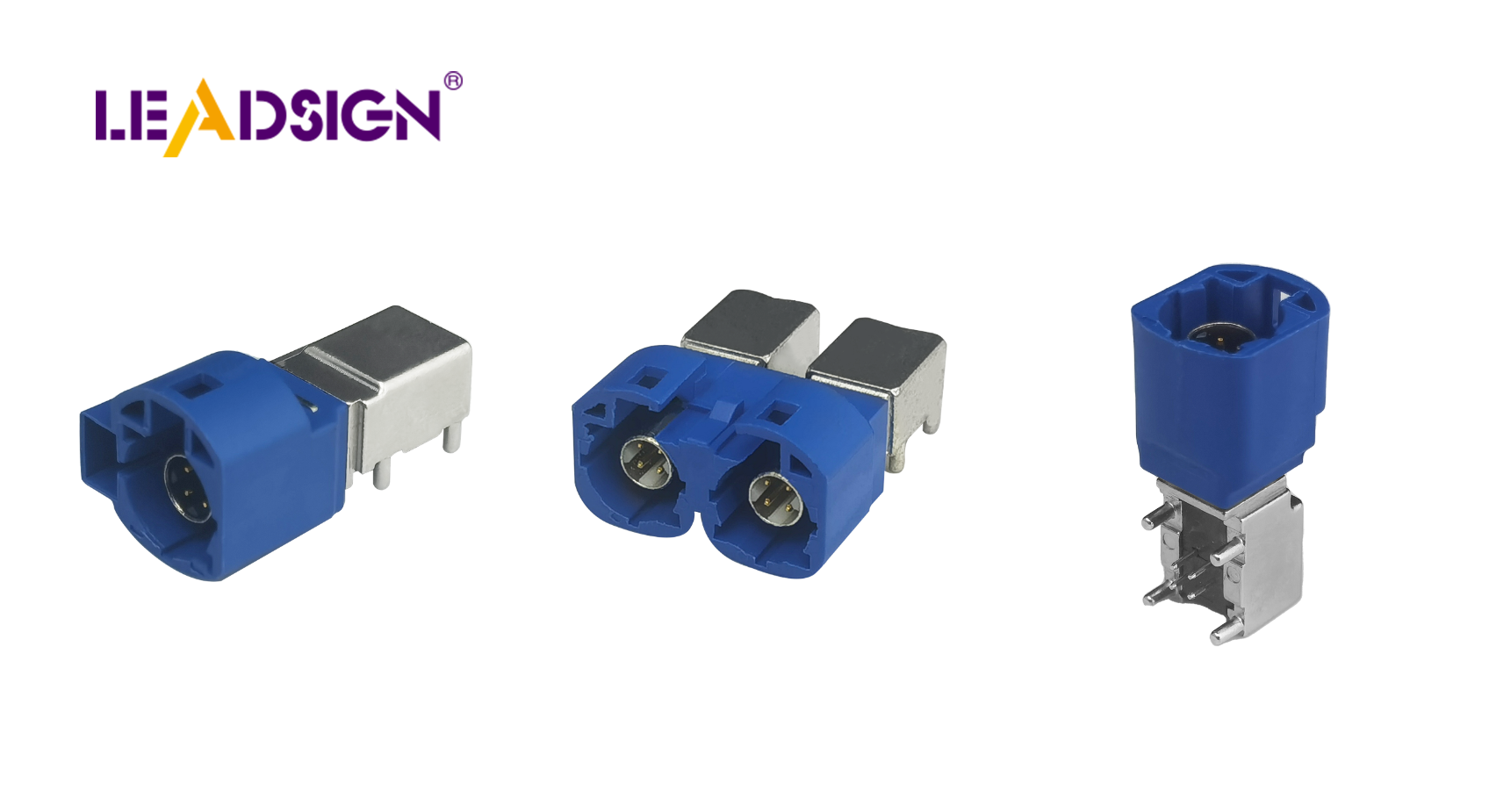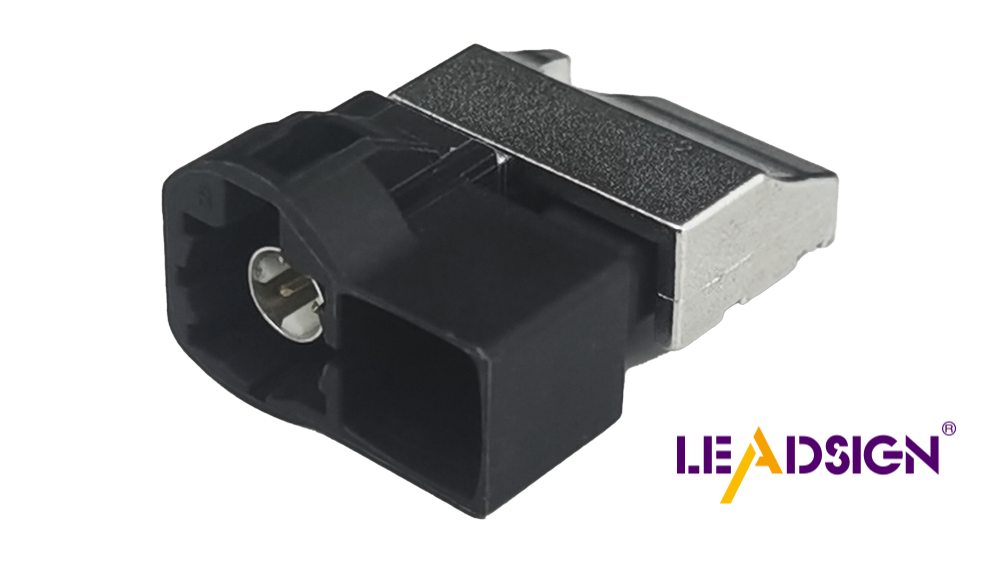Best High Current Automotive Plugs and Connectors for Electric Vehicles

High current vehicle connectors are important for electric cars. They help power move well, which is key for car safety and performance. As more electric cars are made, better connectors will appear. Top vehicle connectors include Tesla Supercharger, CCS, and CHAdeMO. These connectors make charging faster and easier for users. As more people want electric cars, good vehicle connectors become even more important.
Key Takeaways
High current connectors are essential for fast and efficient charging of electric vehicles, enhancing both performance and safety.
The Tesla Supercharger Connector allows for rapid charging, adding significant range in just minutes, making it ideal for long trips.
CCS connectors are versatile, supporting both AC and DC charging, and are widely compatible with many electric vehicle models.
CHAdeMO connectors, primarily used in Japan, provide quick charging for specific models like the Nissan Leaf, ensuring convenience for users.
The GB/T connector is crucial in China, supporting high power levels and complying with international standards for broader usability.
Safety features in high-voltage connectors, such as short circuit protection and temperature monitoring, are vital for preventing accidents during charging.
Choosing the right connector based on your vehicle type and regional availability is key to maximizing charging efficiency and convenience.
Top High Current Vehicle Connectors for EVs

Tesla Supercharger Connector
Specifications and Features
The Tesla Supercharger Connector is great for fast charging. It can give up to 250 kW. This means you can add many miles in just 15 minutes. This makes it popular with Tesla drivers, especially for long trips. Tesla has many charging stations worldwide, so you can charge almost anywhere.
Compatibility and Applications
This connector is only for Tesla cars. It makes charging easy and quick. It fits well, so it won't disconnect while charging.
CCS (Combined Charging System) Connector
Specifications and Features
The CCS Connector helps charge cars fast. It can charge to 80% in less than an hour. This is good for long trips because you can charge quickly. Many car makers use the CCS connector, and it is found in many places.
Compatibility and Applications
The CCS connector works with many electric cars. You can find places to charge with this connector type easily. It can do both AC and DC charging, which is useful for different needs.
CHAdeMO Connector
Specifications and Features
The CHAdeMO Connector is made by Japanese car makers. It charges up to 50 kW, which is fast. Cars like the Nissan Leaf use it for quick charging.
Compatibility and Applications
The CHAdeMO connector is common in Japan and other places. It works with many charging stations. It connects well, so your car gets power without stopping.
GB/T Connector
Specifications and Features
The GB/T Connector follows the GB/T 20234 rule. This rule makes sure it fits certain sizes. It matches with world rules like IEC 62196 and SAE J1772. The Type 2 connector in this rule can do both AC and DC charging. This means you can charge your car well at home or outside. The GB/T connector is made to stay connected, so it won't come loose while charging.
Compatibility and Applications
The GB/T Connector is mostly used in China. It is the main plug for charging cars there. It works with both AC and DC, so it's good for different needs. Many Chinese electric cars use this plug. You can charge at lots of places in China. It also matches world rules, so it can be used in other countries too. It's a strong and good choice for charging electric cars.
Important Details of High-Voltage Car Connectors
Power and Voltage Levels
High-voltage car connectors are key for electric cars. They help power move well from the battery to the car. These connectors handle big power and voltage, which helps with fast charging. For example, the GB/T Connector can handle up to 1,000 volts DC. This lets it charge quickly at 250 kW. It is popular for fast charging, especially in China.
Strength and Weather Protection
When picking high-voltage connectors, strength and weather protection matter. They need to work well in tough weather. Many connectors are strong and have waterproofing. The GB/T Charging Connector has IP55 protection. This means it works in different weather. It keeps your car connectors safe and working well.
Safety and Approvals
Safety is very important for high-voltage car connectors. They have safety features to stop accidents. The GB/T Connector has short circuit protection and checks for ground faults. It also watches temperature to stop overheating. These connectors meet rules like IEC 62196 and SAE J1772. This makes sure they are safe and work with many cars and chargers.
Benefits of Using High Current Connectors in EVs
Faster Charging Times
High voltage connectors help charge electric cars faster. They let more electricity flow quickly into the battery. This means less waiting and more driving. For example, the Tesla Supercharger Connector adds many miles in minutes. This makes fast charging easy, especially on long trips.
Enhanced Safety and Reliability
Safety is very important for high voltage connectors. They handle big power without overheating or accidents. They have safety features like locks and fireproof materials. Even if there's a fire, they won't spread it. Reliable connectors keep your car safe in different conditions.
Improved Energy Efficiency
High voltage connectors send electricity well from the charger to the car. They reduce power loss, so more energy charges the battery. This saves energy and lowers charging costs. With the CCS Connector, you get both AC and DC charging. It fits different needs and stays energy efficient.
High current connectors are important for electric cars. They help charge fast and work well. You learned about different connectors like Tesla Supercharger, CCS, CHAdeMO, and GB/T. Each has special benefits. For quick charging, use the CCS connector. It gives power from 50 kW to 350 kW. This makes charging faster. If you want very fast DC charging, pick the GB/T connector. It handles high power well. Choose the right connector for your needs to get the best performance.
FAQ
What are the main types of EV connectors?
There are different EV connectors for various places and needs. The common ones are:
Tesla Supercharger Connector: Only for Tesla cars.
CCS (Combined Charging System) Connector: Used a lot in Europe and North America.
CHAdeMO Connector: Popular in Japan and some other areas.
GB/T Connector: Mostly used in China.
How do I choose the right connector for my electric vehicle?
To pick the right connector, think about your car type and where you live. Tesla cars use their own Supercharger connectors. Many other cars in Europe and North America use the CCS connector. Always check your car's details and the charging station's fit.
Why do DC fast charging stations have attached cables?
DC fast charging stations have cables attached because:
Safety: High power needs safe connections.
Cost and Weight: Cables are costly and heavy, so carrying them is hard.
Convenience: The right cable is always there for the station's connector.
What factors should I consider when designing an EV connector?
When making an EV connector, think about:
Current and Data Communication: Make sure power and data move well between the car and charger.
Cable Weight and Connection Point: The cable should be easy to handle and connect well to the car.
Connector Shape and Complexity: Design it to be simple and reliable.
Locking Systems: Add ways to stop it from coming loose by accident.
How important is shielding in automotive connectors?
Shielding is very important in high-power systems. It stops signal problems, keeping communication and power steady. Good shielding keeps the system working well, even with lots of electromagnetic noise.
Can I use an AC charging station with any EV?
Yes, you can use an AC charging station with any EV if you have the right cable. Unlike DC fast chargers, AC stations usually don't have cables, so bring one that fits your car.
What safety features should I look for in a high-voltage connector?
Look for connectors with:
Short Circuit Protection: Stops electrical problems.
Ground Fault Detection: Finds and fixes grounding issues.
Temperature Monitoring: Stops overheating while charging.
Compliance with Standards: Make sure it meets rules like IEC 62196 and SAE J1772.
How do high current connectors improve charging times?
High current connectors let more electricity flow fast into the battery. This cuts down charging time a lot, so you can drive sooner. For example, the Tesla Supercharger adds many miles in minutes.
Are there any regional differences in connector usage?
Yes, connector use changes by place:
North America and Europe: CCS connectors are common.
Japan: CHAdeMO connectors are used a lot.
China: GB/T connectors are the main ones.
What are the benefits of using high current connectors in EVs?
High current connectors have many benefits:
Faster Charging: Less waiting at charging spots.
Enhanced Safety: Safety features stop accidents.
Improved Energy Efficiency: Cuts power loss, saving energy and money.
See Also
Boosting Data Transfer: Significance of Fast Automotive Connectors
Improving Vehicle Data Flow: Next-Gen Connectors and Wires
Revealing Opportunities: Fast FAKRA-Mini Connectors for Cars
Significance of Fakra Connectors in Today's Automotive Technology
Benefits of HFM Connectors for Modern Automotive Applications

